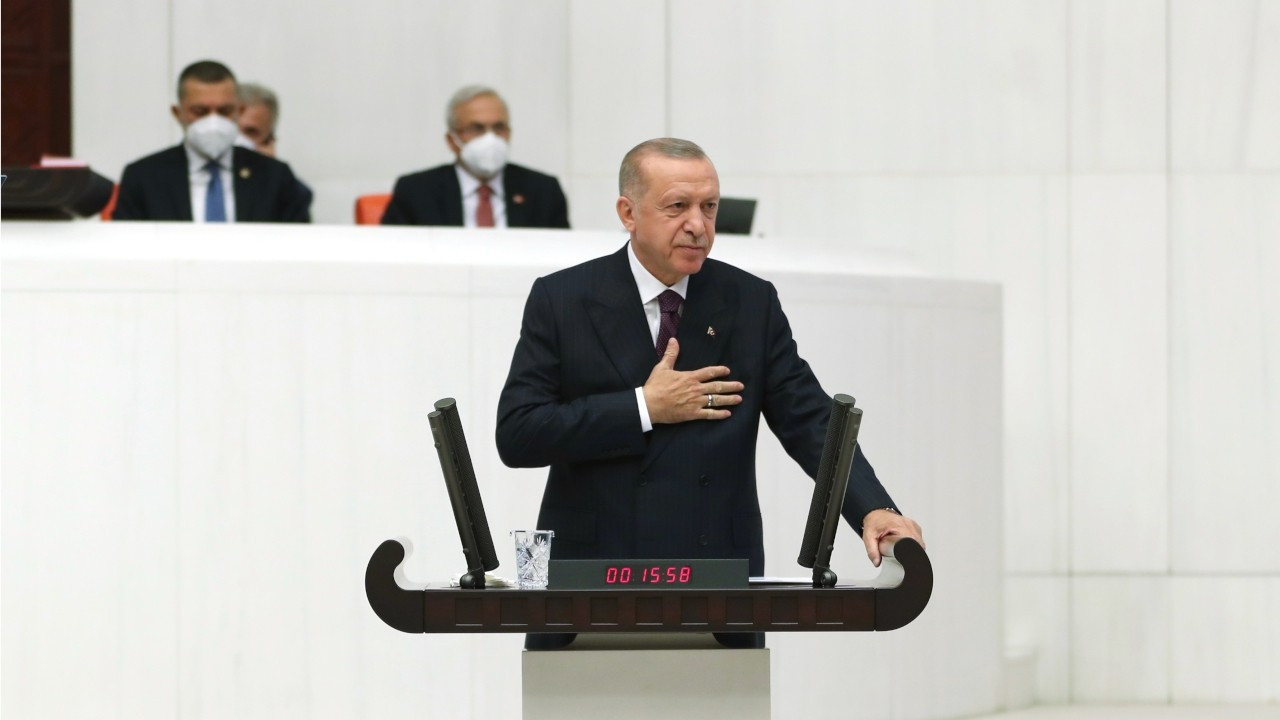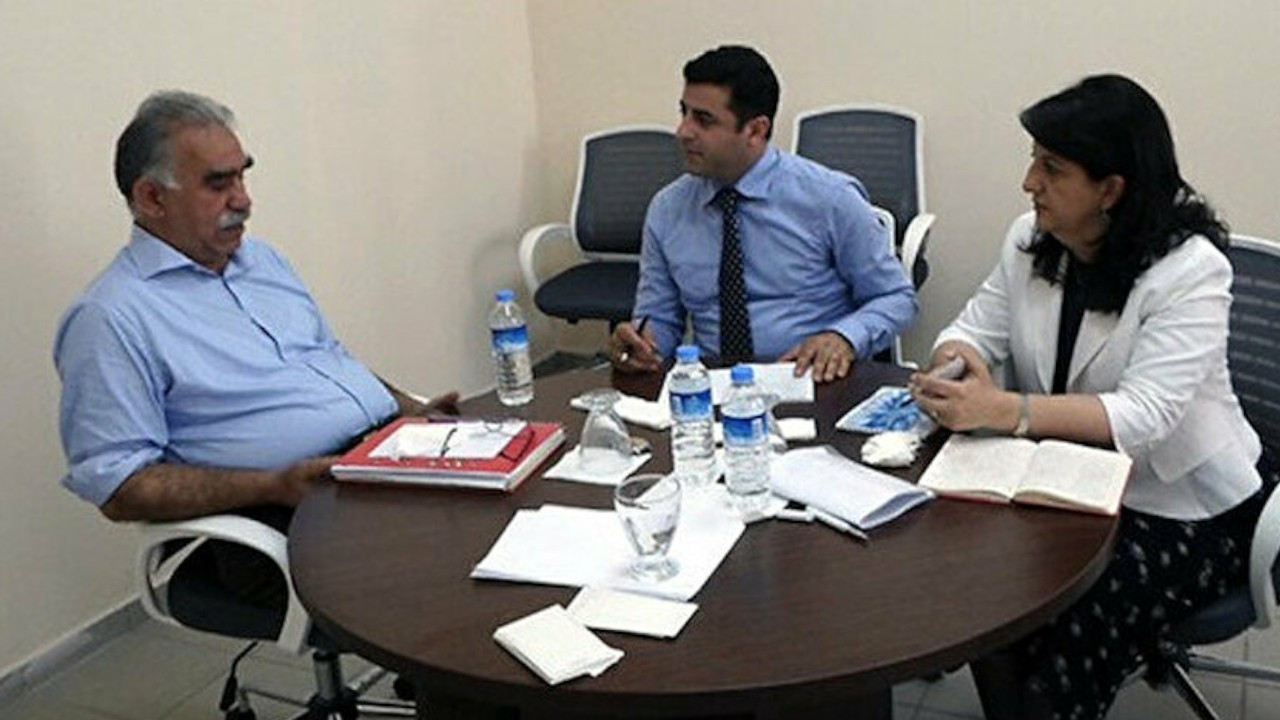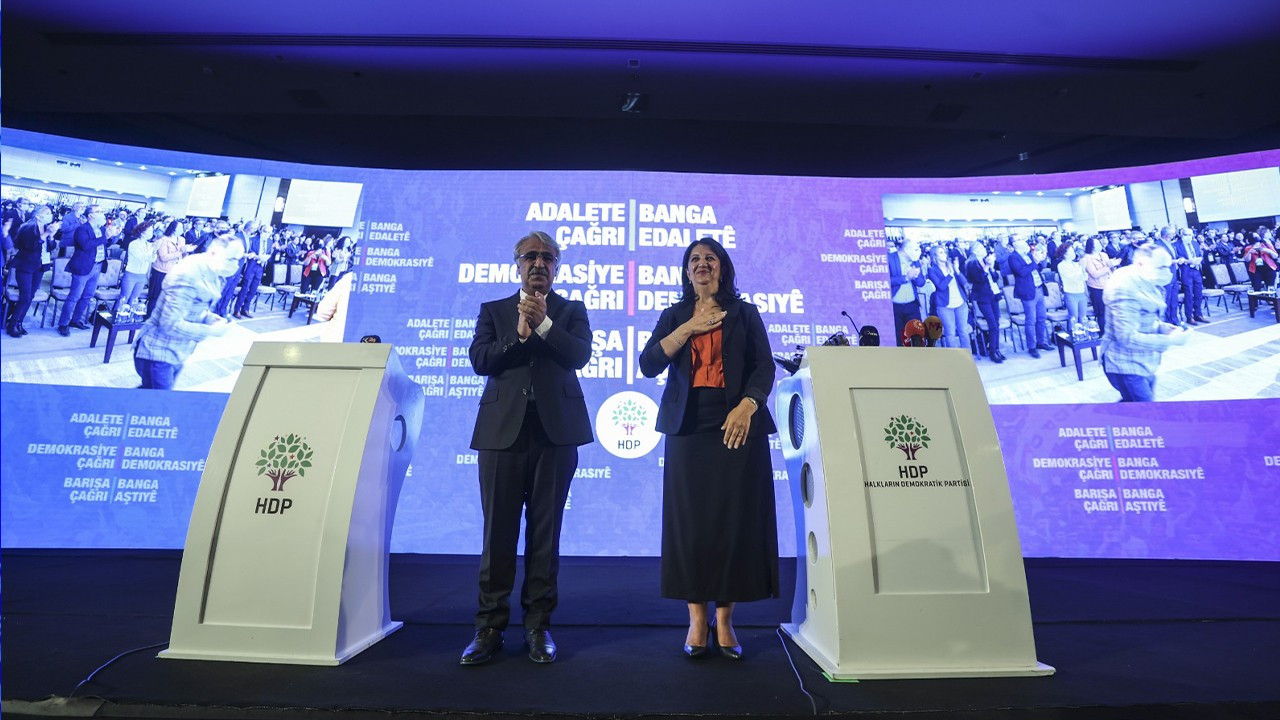Despite claims, Erdoğan hasn’t solved the Kurdish issue, say experts in Diyarbakır
As opposition parties lay out plans to achieve peace in Turkey’s eastern Kurdish region, President Erdoğan has claimed that his AKP-led government has already solved the issue. With the majority of municipalities in the region led by emergency decrees, human rights denied, and the Kurdish language still penalized, experts say Erdoğan has done nothing of the sort.
Vecdi Erbay / DUVAR
Despite claims that his ruling Justice and Development Part (AKP)-led government has solved the “Kurdish problem,” experts in Turkey’s Kurdish-majority east say President Recep Tayyip Erdoğan has in fact failed to do so.
Twenty years after he came to power and thirty years after he laid out a plan to ameliorate the situation in the East, NGO workers say the oppression of Kurdish people in Turkey continues.
In the lead-up to the 2023 elections, opposition parties have brought forth plans on how they would address the “Kurdish issue,” were they to come to power. The main opposition party, the Republican People’s Party (CHP) has formed an “Eastern Desk” and has sent a delegation to the Kurdistan Region in Iraq.
Leaders from the İYİ (Good) and Future parties have also publicly stated the need for reform in the region - Meral Akşener, chair of the İYİ Party, said that the pro-Kurdish People’s Democratic Party (HDP) was rightfully elected to parliament, while the chair of the Future Party, Ahmet Davutoğlu said that there should be Kurdish-language education when he visited Diyarbakır, the largest city in eastern Turkey.
At the beginning of his tenure, Erdoğan was vocal about the need for a solution in Turkey’s Kurdish regions. In 1991, when he was Istanbul chairman of the Welfare (Refah) Party and as violence raged in Turkey’s east, he had a report commissioned that outlined the scope of the Kurdish issue. Namely, the report found, according to Diyarbakır Bar Association President Nahit Eren, that Kurdish people live in an Eastern region governed by emergency decrees where they are forced to assimilate to Turkish culture. In 2005, on a visit to Diyarbakır, Erdoğan said that he was determined to solve this issue. In 2021, he said he and his party had. Despite these claims, Nahit Eren said, the situation is no different than when the report came out in 1991.
“The determinations in the report on the Kurdish question prepared by Erdoğan, or which he had prepared while he was the Istanbul Provincial Chairman of the Welfare Party in 1991, remain in place today,” said Eren.
Many of the issues Erdoğan swore to address - such as the unresolved killing of Kurdish people in the 1990s, or the arbitrary violation of rights and freedoms in the region - are still ongoing, he added.
“If the right to education in the language and the definition of citizenship remain as a problem, if there is continued interference with the right to vote and with elections, there is a Kurdish problem,” Eren said. “To say that there is no Kurdish problem in such an environment is to try to cover the sun with mud.”
Erdoğan initiated peace talks with the Kurdistan Workers’ Party (PKK) in the mid-2000s, at the beginning of his tenure, but the second round of these talks fell apart in 2015. Since then, many of the trademark oppressive measures from the 1990s in the region - language bans, removal of democratically elected politicians, and arbitrary detention of and violence towards civilians - have been reinstated.
"The fact that Erdoğan, who, with the Resolution Process, has taken the most advanced step in the Kurdish issue so far, has fallen behind the opposition today is an example to society, and it is very sad for him,” said Eren.
Eren added that now that the opposition is attempting to address the Kurdish question, Erdoğan is also courting the Kurdish vote with his rhetoric. However, his alliance with the far-right Nationalist Movement Party (MHP) and the lived experience of Kurdish people in the region in the past six years makes it hard for his attempts to be genuine. The conflict in the region needs to be addressed in a sustainable way, said Eren, not as an electoral calculation.
The head of the Diyarbakır branch of the Human Rights Association of Turkey, Abdullah Zeytun, echoed this sentiment. The “Kurdish issue,” he said, is a century-old problem and is one of the most important issues in Turkey. Saying that the government has “solved the problem” is just a means of manufacturing consent in the lead up to the 2023 election, he argued. This statement is clearly contradicted by the situation in the Kurdish region in recent years.
“Although the policy of ignoring and denying the Kurds has changed in appearance in the 21st century, Kurds living within the borders of the Republic of Turkey, in particular, have been exposed to various injustices and unlawfulness due to the unresolved nature of this issue,” Zeytun said. “In the first years after the AKP came to power, they accepted that there was a problem they called the 'Kurdish Question' and made many promises to solve this problem. However, at present, it is evident that this issue has not been resolved and has even become more complex.”
He said that in all of the violation reports that the Human Rights Foundation (İHD) has filed in the region, there is one underlying commonality: the denial of the basic rights of Kurdish people in Turkey. The Kurdish language is banned in the public sphere, Kurdish cannot be spoken in public institutions, Kurdish politicians are removed from their posts and replaced by trustees, and others are imprisoned or exiled. According to Zeytun, these are only a small fraction of the violations Kurdish people face in Turkey; they’re denied their basic rights in all aspects of the public sphere, from prison, to the justice system, to parliament.
“While closure cases are being filed against Kurdish political parties, the claim that this issue has been resolved is far from the truth,” Zeytun said.
Zeytun added that voters should not expect the AKP to implement any solutions to these issues. “If there is no problem, there is no situation that requires a solution,” he said.
Head of the Union of Agricultural and Forest Workers, as well as a spokesman for the Diyarbakır branch of the Confederation of Public Employees’ Unions, Nasır Demirkıran, further underlined that the AKP and Erdoğan, despite claims throughout their tenure, have not addressed the “Kurdish issue.” While for years they claimed to be doing so, he said disingenuous and intended only to increase the AKP’s power.
“In an attempt at seeming like they were owning this issue, the AKP government has made various attempts to address it in the region. However, it achieved results that only served itself and fed its power, not that served the interest of the people,” Demirkıran said.
He added that a real solution to the problem needs to take into account the experience of Kurdish people and the ways that their human rights have been violated.
“The Kurdish issue will not be resolved unless the issue is discussed in terms of human rights and freedoms, and the results are written into the constitution,” he said.
While he thinks the situation could be improved by lifting emergency measures, addressing impunity and lawlessness in the region, reinstating deposed politicians, and allowing for the widespread use of the Kurdish language, little can be achieved while the AKP is in an alliance with the ultra-nationalist, anti-Kurdish MHP.
“Erdoğan and his government, which emerged as a power that trampled nationalism, are now trying to conduct themselves holding nationalism above everything else,” Demirkıran said.

 Erdoğan: We solved Kurdish issue with all of its dimensionsPolitics
Erdoğan: We solved Kurdish issue with all of its dimensionsPolitics Erdoğan once again denies existence of Kurdish issue in TurkeyPolitics
Erdoğan once again denies existence of Kurdish issue in TurkeyPolitics Kurdish question and the interlocutor debateWorld
Kurdish question and the interlocutor debateWorld